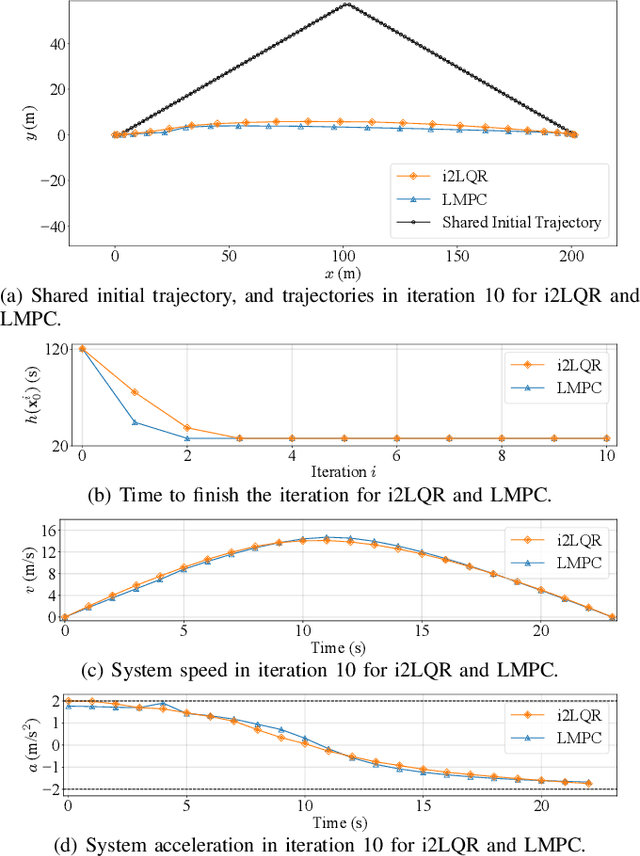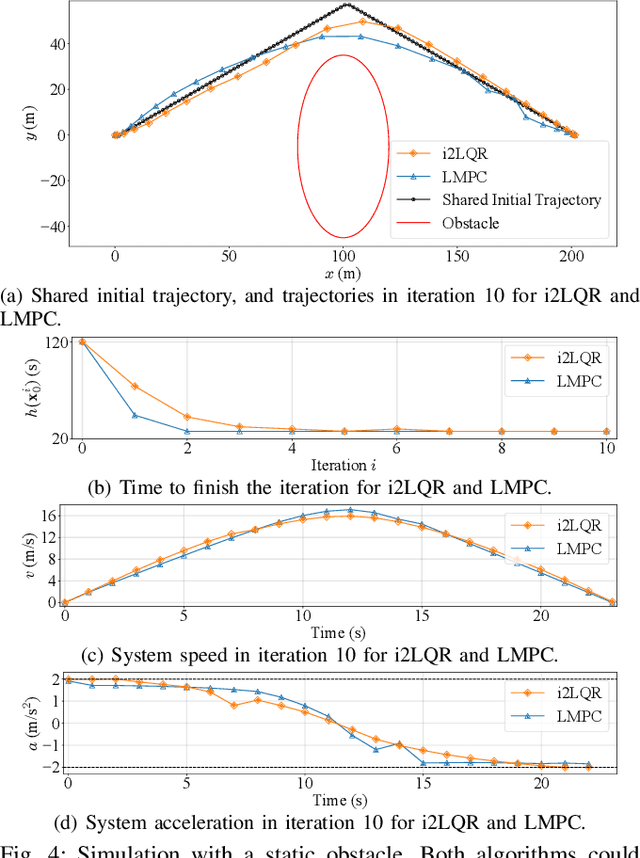Suiyi He
i2LQR: Iterative LQR for Iterative Tasks in Dynamic Environments
Mar 17, 2023



Abstract:This work introduces a novel control strategy called Iterative Linear Quadratic Regulator for Iterative Tasks (i2LQR), which aims to pursue optimal performance for iterative tasks in a dynamic environment. The proposed algorithm is reference-free and utilizes historical data from previous iterations to enhance the performance of the autonomous system. Unlike existing algorithms, the i2LQR computes the optimal solution in an iterative manner at each timestamp, rendering it well-suited for iterative tasks with changing constraints at different iterations. To evaluate the performance of the proposed algorithm, we conduct numerical simulations for an iterative task aimed at minimizing completion time. The results show that i2LQR achieves the optimal performance as the state-of-the-art algorithm in static environments, and outperforms the state-of-the-art algorithm in dynamic environments with both static and dynamics obstacles.
Competitive Car Racing with Multiple Vehicles using a Parallelized Optimization with Safety Guarantee
Dec 13, 2021



Abstract:This paper presents a novel planning and control strategy for competing with multiple vehicles in a car racing scenario. The proposed racing strategy switches between two modes. When there are no surrounding vehicles, a learning-based model predictive control (MPC) trajectory planner is used to guarantee that the ego vehicle achieves better lap timing. When the ego vehicle is competing with other surrounding vehicles to overtake, an optimization-based planner generates multiple dynamically-feasible trajectories through parallel computation. Each trajectory is optimized under a MPC formulation with different homotopic Bezier-curve reference paths lying laterally between surrounding vehicles. The time-optimal trajectory among these different homotopic trajectories is selected and a low-level MPC controller with obstacle avoidance constraints is used to guarantee system safety-critical performance. The proposed algorithm has the capability to generate collision-free trajectories and track them while enhancing the lap timing performance with steady low computational complexity, outperforming existing approaches in both timing and performance for a car racing environment. To demonstrate the performance of our racing strategy, we simulate with multiple randomly generated moving vehicles on the track and test the ego vehicle's overtake maneuvers.
 Add to Chrome
Add to Chrome Add to Firefox
Add to Firefox Add to Edge
Add to Edge